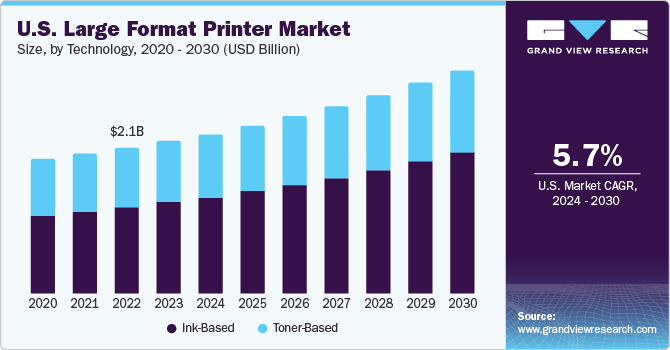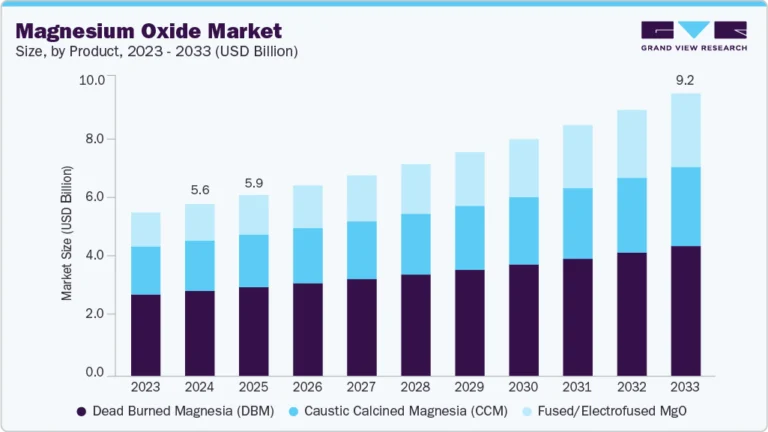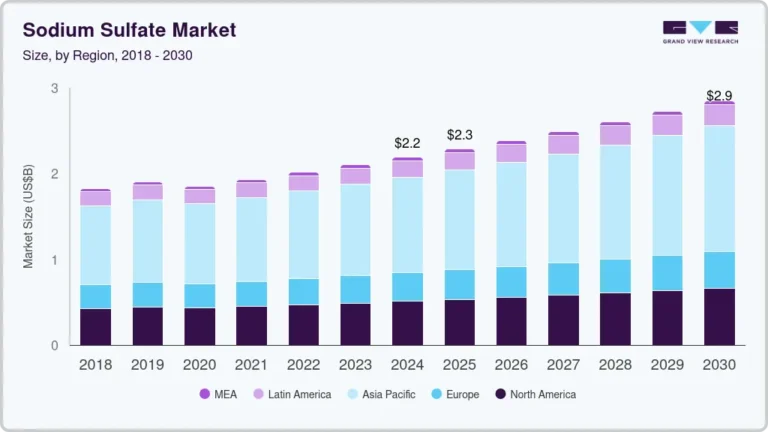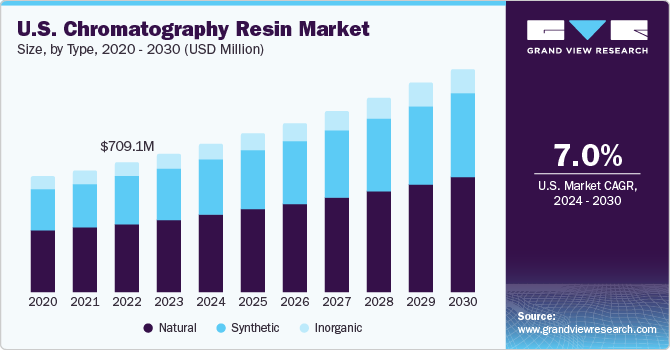Distributed Control Systems Market Size, Share & Trends Analysis growing at a CAGR of 6.1% from 2024 to 2030
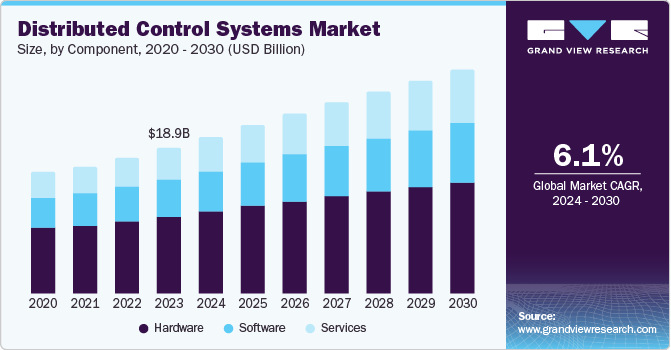
The global distributed control systems market size was valued at USD 18.99 billion in 2023 and is projected to grow at a CAGR of 6.1% from 2024 to 2030. Manufacturers across several critical sectors, such as power generation, chemicals, and pharmaceuticals, are increasingly implementing distributed control systems solutions to improve process control, reduce operational costs, and enhance productivity. The increasing adoption of automation and the need for enhanced operational efficiency in various industries are major drivers of this market. In the power generation industry, the growing demand for renewable energy and stringent environmental regulations are expected to present a sizeable growth opportunity for distributed control system providers.
Request a free sample copy or view report summary: https://www.grandviewresearch.com/industry-analysis/distributed-control-systems-market/request/rs1
Industries such as oil and gas, power generation, and water treatment are increasingly adopting automation to enhance efficiency, safety, and productivity across different processes. A distributed control system (DCS) enables centralized monitoring and control of complex industrial processes, reducing human intervention and minimizing the risk of errors. A steady shift towards smart factories is expected to drive the adoption of DCS further, as these systems are integral to implementing advanced manufacturing technologies. For instance, in April 2024, Valmet launched its next-generation DCS solution, the Valmet DNAe. The system is designed to deliver a state-of-the-art user experience and cybersecurity and comes with control software and hardware, cybersecure system architecture, and engineering and analytics tools. Other companies aim to develop advanced products that can offer automation solutions to diverse process industries worldwide, driving industry expansion.
Distributed control systems are widely used in renewable power generation plants to ensure robust, reliable, and efficient control of geographically dispersed assets. As investments in renewable energy infrastructure continue to grow, the demand for DCS solutions in this sector is anticipated to rise significantly. Moreover, integrating distributed control systems with advanced software solutions allows seamless data flow across different enterprise levels, enabling better coordination, visibility, and operational control. Additionally, distributed control systems provide real-time insights, enhance decision-making, and streamline workflows, thus improving overall efficiency and productivity. For instance, in February 2023, ABB launched its latest version of ABB Ability Symphony Plus distributed control system (DCS) to accelerate digital transformation in process automation for water and power generation industries. The system includes an SD Series e-Class process controller that enables plant-wide digitalization. It minimizes the impact on system infrastructure and process operations during digital transformation.
Component Insights
The hardware segment accounted for a leading revenue share of 52.6% in 2023. Advanced hardware components include high-performance controllers, I/O modules, and communication devices that handle complex processes, support many I/O points, and enable seamless integration with other systems. Innovations in processors, sensors, and communication devices enhance the performance, reliability, and efficiency of the distributed control system’s hardware. These advancements allow for improved control strategies and better system responsiveness, crucial for modern industrial applications. This growing demand for enhanced performance, reliability, and scalability in distributed control systems is expected to maintain a strong demand for these components.
The services segment is expected to register the fastest CAGR during the forecast period. The increasing complexity of industrial processes and the need for seamless integration of various control systems are driving the demand for system integration services in the global market. Organizations require expert services to integrate new DCS solutions with existing systems, ensuring efficient data flow. System integrators provide technical expertise to design, implement, and optimize integrated control systems that enhance overall operational efficiency. Older control systems often require the capabilities of modern DCS solutions, such as advanced analytics, real-time data processing, and integration with IoT and digital technologies. Updating these systems involves upgrading hardware components, enhancing software functionalities, and improving cybersecurity measures. For instance, in October 2023, Emerson released the DeltaV Version 15 Feature Pack 1, an update to its DeltaV distributed control system. This update includes new technological enhancements that improve the control system’s situational awareness, connectivity, and performance while ensuring operational sustainability and efficiency.

